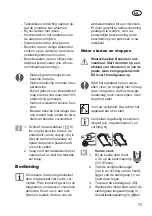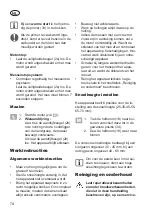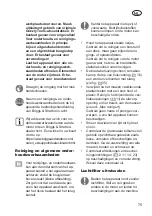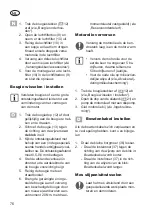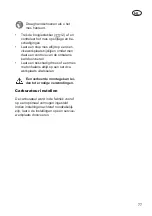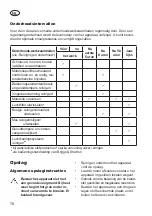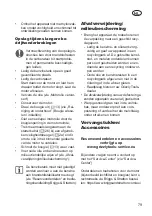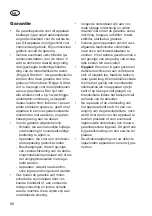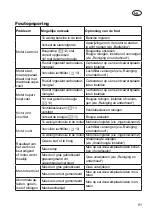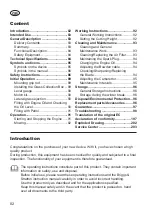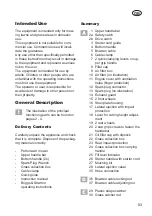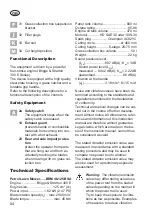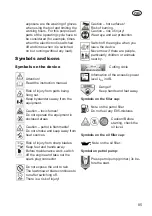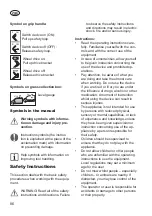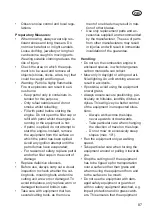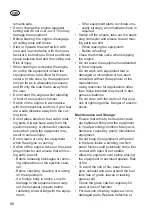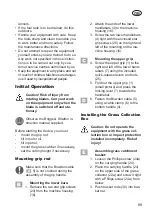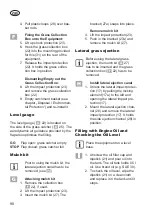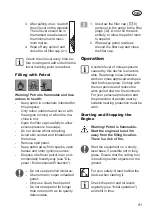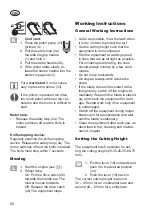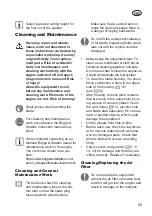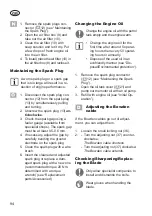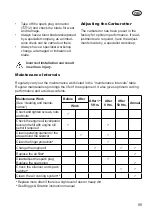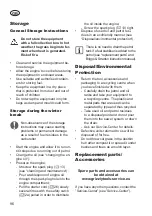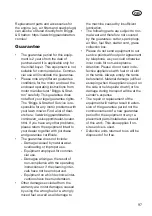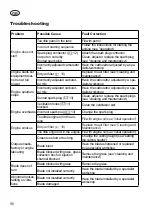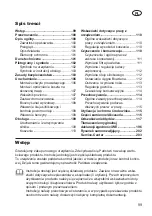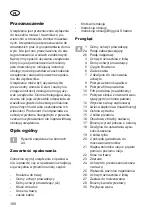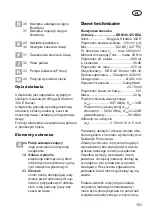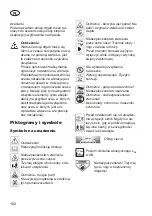
87
GB
• Observe noise control and local regu-
lations.
Preparatory Measures:
• When mowing, always wear slip res-
tistant shoes and long trousers. Do
not mow barefoot or in light sandals.
Loose clothing, jewellery or long hair
can become caught in moving parts.
Wearing suitable clothing reduces the
risk of injury.
• Check the area on which the equip-
ment is to be used and remove all
objects (stones, sticks, wires, toy) that
could be caught and flung out.
• Warning: Petrol is highly flammable.
Fire or explosions can result in seri-
ous burns:
- Keep petrol only in containers in-
tended for this purpose;
- Only refuel outdoors and do not
smoke whilst refuelling;
- Fill with petrol before starting the
engine. Do not open the filler cap or
refill with petrol whilst the engine is
running or the equipment is hot:
- If petrol is spilled, do not attempt to
start the engine. Instead, remove
the equipment from the surface on
which the petrol has been spilled.
Avoid any ignition attempt until the
petrol fumes have evaporated;
- For reasons of safety, replace petrol
and other filler caps in the event of
damage.
• Replace defective silencers.
• Before use, always carry out a visual
inspection to check whether the cut-
ting tools, mounting bolts and entire
cutting unit are worn or damaged. To
avoid imbalance, only replace worn or
damaged tools and bolts in sets.
• Take care with equipment that has
several cutting tools, as the move-
ment of one blade may result in rota-
tion of other blades.
• Use only replacement parts and ac-
cessories supplied and recommended
by the manufacturer. The use of parts
from other manufacturers may result
in injuries and will result in immediate
invalidation of the guarantee.
Handling:
• Do not run the combustion engine in
enclosed spaces, in which dangerous
carbon monoxide can collect.
• Mow only in daylight or with good arti-
ficial lighting. An unlit working area can
result in accidents.
• If possible, avoid using the equipment
on wet grass.
• Always ensure secure positioning, par-
ticularly on hillsides, landfills, ditches or
dykes. This will give you better control
of the equipment in unexpected situa-
tions.
- Always work across the slope,
never upwards or downwards.
- Take particular care when changing
the direction of travel on the slope.
- Do not mow on excessively steep
slopes (max. 10°).
• Run the equipment only at walking
speed.
• Take particular care when turning the
equipment around or pulling it towards
you.
• Stop the cutting tool if the equipment
has to be tipped up for transportation
over a surface other than grass and
when moving the equipment from and
to the surface to be mown.
• Do not use the equipment with dam-
aged safety equipment or guards or
with no safety equipment attached, e.g.
impact protection and/or grass catch-
ers. This ensures that the equipment

